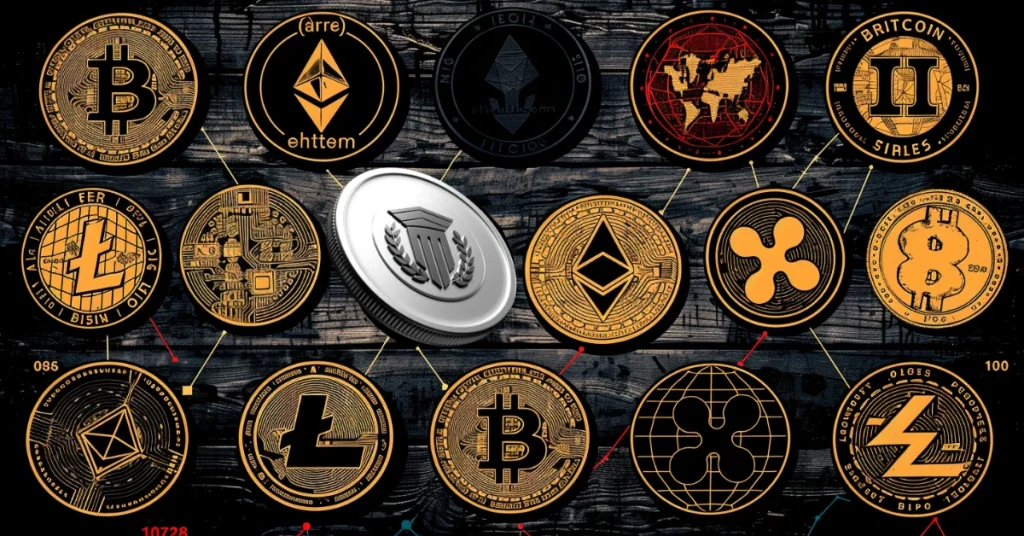
Throughout history, societies have often frowned upon bankruptcy, viewing it from a moral perspective as a betrayal of mutual trust and responsibility.
But having lived through and reported on various financial crises, I have come to appreciate the court-driven process by which modern capitalism deals with this unpleasant problem.
Bankruptcy provides a much-needed reprieve to restore market confidence, even if it imposes what appears to be an arbitrary and asymmetrical burden on those who are held liable as debtors.
We are reminded of this again as the dust settles after the collapse of several major crypto asset (virtual currency) companies in 2022.
give a grace period for recovery
Bankruptcy trustees such as FTX, Celsius, Genesis and Voyager have made varying degrees of progress in recent days in their efforts to repay creditors, highlighting how bankruptcies can be useful. It shows how it can be a circuit breaker.
Freezing payment demands and margin calls, like the automatic trading halt triggers employed by many stock exchanges when selling gets out of hand, can lead to bank runs or a panic that can cause a permanent market collapse. Break the chain.
In other words, bankruptcy buys time for markets to shift from fear to greed, allowing prices to recover and losses to be mitigated.
Investors can evaluate the value of a bankrupt company's assets more calmly only after the market impact has subsided. When trustees put in professional management and start selling assets to recover money, they often discover that the panic was overdone and that parts of the balance sheet were undervalued. .
On the other hand, if the failed company had liquid exchange-based assets, or, like many failed crypto companies, stored them for others, along with general market conditions. There is a good chance that their value will increase.
Of course, such a recovery is not guaranteed. However, there is one aspect of the natural volatility and cyclical nature of crypto markets that means debt recovery rates are likely to improve if creditors can hold out.
“Full” recovery of FTX
Consider FTX, which ushered in the “crypto winter” bankruptcy. The failed exchange's founder, Sam Bankman-Fried, who is in prison after being convicted of massive fraud, will restore the value of FTX's assets on behalf of creditors. The company's new CEO, John J. Ray III, has been working diligently to recover much of the lost capital.
The company announced in a court filing this week that it expects to fully repay the exchange's customers. The definition of “full amount” may be disputed, as it is based on the bankruptcy declaration date, two weeks after most of the tokens held by customers on the exchange had already fallen due to the FTX issue. That said, it's a marked improvement from when FTX creditors' claims were trading at around 15 cents.
The biggest factor behind the recovery is the crypto asset market. At the time of writing this article, the Bitcoin price is trending at a level slightly below $43,000 (approximately 6.36 million yen, equivalent to 148 yen to the dollar), but as of November 22, when FTX declared bankruptcy. , which was the bear market low of around $18,200.
The CoinDesk 20, an index of major crypto assets, rose 88% during this period. This upward trend has benefited many creditors.
Indeed, some of the profits of bankrupt companies come at the expense of other struggling companies. This tension is evident in the dispute between FTX and Voyager, a lending company that went bankrupt in the summer of 2022.
FTX was at one point poised to acquire Voyager, but the deal fell through two months later when FTX itself went bankrupt. Voyager's bankruptcy trustee has been engaged in a legal battle with FTX's trading arm, Alameda Research, for the past year. Alameda is suing Voyager to recover about $445 million in loan repayments.
And Grayscale, a digital asset manager and sister company to fellow bankrupt lending firm Genesis Global Capital, recently suffered major outflows. FTX's bankruptcy trustee took advantage of the conversion of the Grayscale Bitcoin Trust (GBTC) into an exchange-traded fund (ETF) and sold approximately $1 billion worth of GBTC.
Genesis' bankruptcy trustee went a step further on February 5, asking the court to approve the sale of $1.6 billion worth of Grayscale trust assets, most of which are now held in Bitcoin ETFs.
But these events are also part of the clean-up needed to stabilize the industry. There are other bright spots as well. Failed lending company Celsius announced last month that it would formally emerge from bankruptcy and distribute $3 billion to creditors. And this week, Voyager's token VGX was incorporated into Gala Games' Galachain. This move could eventually provide holders with a new outlet for liquidity.
reveal the secret
As lawyers Yesha Yadav and Robert Stark pointed out, the bankruptcy proceedings are a legacy of American regulators' failure to come up with a clear regulatory framework for the crypto industry. It was something to fill in the blanks.
This meant that failed exchanges could not safely continue operating to recover creditor funds, distorting the normal recovery process. To me, this is less a problem with the bankruptcy process than a failure of the regulatory political process.
Mr. Yadav and Mr. Stark identified key areas where bankruptcy courts upheld important business principles that regulators did not uphold. The judicial power of the courts was needed to force disclosure of the poor handling of customer accounts by companies such as FTX and Celsius. This information will be useful for future reforms.
Let's hope the secret misdeeds are exposed and investors don't have to face another brutal liquidation anytime soon. But there was a lot of dirt to clean up, and we can be thankful that bankruptcy has cleaned it up.
|Translation and editing: Akiko Yamaguchi, Takayuki Masuda
|Image: Melinda Gimpel/Unsplash
|Original text: Bankruptcy Was Crypto Winter's Circuit Breaker
The post Bankruptcy was a circuit breaker for the “crypto asset winter” | CoinDesk JAPAN appeared first on Our Bitcoin News.

 1 year ago
78
1 year ago
78














 English (US) ·
English (US) ·